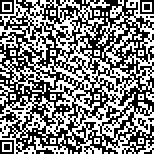| 摘要: |
| 西部省会城市在发展特征方面存
在诸多相似性,本文探讨西部省会城市发
展动力机制的研究方法。以西宁市为研究案
例,运用多元回归等量化方法,从宏观、中
观、微观分层提取代表政府、企业、个人3
类主体的行为选择影响因子,基于因子及因
子间的互动关系建构起“政府—企业—个
人”互动分析框架;运用所建构的框架对西
宁的城市发展特征进行解析,进而试图对
城市发展的路径做出解释。最后基于发展
路径解释,分层次探讨了规划应对策略。 |
| 关键词: 西部省会城市 城镇化 “政府—
企业—个人”互动模型 动力机制 结构特征 |
| DOI:10.13791/j.cnki.hsfwest.20160506 |
| 分类号: |
| 基金项目:国家自然科学基金资助项目(51578382;
51608367) |
|
| On the Analysis Framework and Dynamic Mechanisms of Urbanization in Provincial Capital Cities inWestern China |
|
XU Su
|
| Abstract: |
| Numerous similarities in urbanization can be found among provincial capital
cities in Western China. In the case of Xining, combing the historical process and analyzing
the urbanization dynamic characteristic, it’s found that the driving subjects of urbanization
of Xining change from circulatory the market and the government to multiple ones, with
both internal and external factors. Based on series data from 2000 to 2010, an interaction
model concerning “government-business-individuals” is established. Based on the analysis
of driving forces, it explains the dynamic mechanisms of urbanization. Specifically,
the paper explains the interactions among governments, businesses and individuals,
how they promote the urbanization process and the formation of current urbanization
pattern in Xining City-Region. Current characteristics and mechanisms of urbanization
development of Xining are explained using the model. Finally, conclusions are drawn that
the urbanization development of Xining is external-dependent, investment-dependent and
economic-growth-oriented, thus has structural defects of biased orientations, structural
contradictions and weak feedback from micro level. To optimize the structure, policy
directions are also discussed for further urbanization development. |
| Key words: The Provincial Capital Cities in Western China Urbanization “Government-
Business-Individuals” Interaction Model Dynamic Mechanisms Structural Characteristics |


